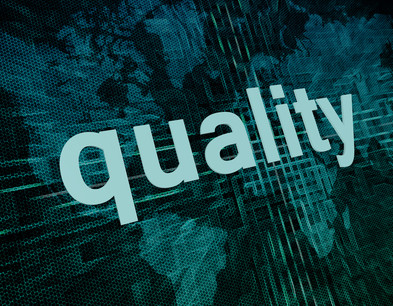 The advent of technology has provided us with many conveniences that previous generations may have only dreamed of — and much of that comes from the Internet. However, as impressive as automated online services are, they’re not exactly the most accurate and can’t provide the quality of an experienced professional. Let’s take a look at an example.
The advent of technology has provided us with many conveniences that previous generations may have only dreamed of — and much of that comes from the Internet. However, as impressive as automated online services are, they’re not exactly the most accurate and can’t provide the quality of an experienced professional. Let’s take a look at an example.
The following is the Russian-to-English version (translated by a professional translator) of a letter Fyodor Dostoevsky wrote to his brother in 1849.
Memory remains and images which I created but had not yet fully embodied. They will eat at me, it’s true! But I still have a heart and the same flesh and blood that can also love and suffer and desire and remember, and that’s life all the same!
Here’s a Google Translate version translating the original Russian text into English.
There was a memory and images created and not yet embodied me. They izyazvyat me the truth! But I am left with the heart and the same flesh and blood, which may also and love and suffer, and wish, and remember, but it’s still a life!
Not only does the professionally translated version have a better sense of grammar and flow, it is also free of nonsensical words and simple translation errors. In other words, it’s both more accurate and more eloquent.
This issue isn’t exclusive to online translation applications. Substandard interpreters and translators may not necessarily have the experience, skills, or background necessary to provide excellent and accurate work. In those cases, there’s a good chance that the result will be similar to using Google Translate. Now, consider the needs of the business world. Can you — as a businessman — afford the risks inherent with these options? When documents and presentations have highly technical information, specific marketing messages, or legal details, one wrong word could at best confuse and at worst distort beyond recognition. In the age of social media, these types of mistakes could easily go viral; creating a PR nightmare that impacts a company’s reputation.
In Star Trek, the crew of the Enterprise used a device called a Universal Translator, which allowed for real-time translations of foreign languages (it also gave a practical explanation for why all these aliens spoke English). Unfortunately, that’s science fiction. Until the dreams of television and film become a reality, the best way to avoid this is to simply hire a professional translation service. At InterStar, we always assign a customized team for each project. This ensures that the interpretation team has both the necessary skills and any specialized background (technical, legal, etc.) for a guaranteed accurate translation.

